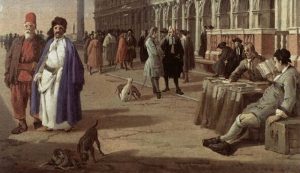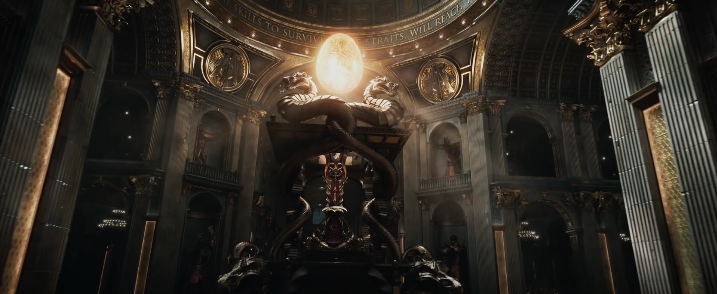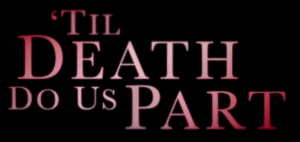One of our majors, Katie Kirk, has an op-ed on Roy Moore in the New York Times today. (Or the New York Times, if you really prefer.) Congratulations, Katie!
Archive | December, 2017
Merchants of Venice; or, the Liberty of Strangers
Last night I dreamed that I was living back in Ithaca (or somewhere very much like Ithaca), and that I was organising an APEE panel with Walter Block on the subject of Venetian libertarianism.
In the real world, I haven’t lived in Ithaca for nearly three decades; and while I am currently organising an APEE panel, I’m not doing it with Walter and it’s not on Venetian libertarianism.
But when I woke up, the reference to Venetian libertarianism reminded me of this passage from William Thomas, a Renaissance-era Welsh traveller who described his visit to Venice in a 1549 memoir:
All men, specially strangers, have so much liberty there that though they speak very ill by the Venetians, so they attempt nothing in effect against their state, no man shall control them for it. … Further, he that dwelleth in Venice may reckon himself exempt from subjection. For no man there marketh another’s doings, or that meddleth with another man’s living. If thou be a papist, there shalt thou want no kind of superstition to feed upon. If thou be a gospeler, no man shall ask why thou comest not to church. If thou be a Jew, a Turk, or believest in the devil (so thou spread not thine opinions abroad), thou art free from all controlment. For eating of flesh in thine own house, what day soever it be, it maketh no matter. And generally of all other things, so thou offend no man privately, no man shall offend thee, which undoubtedly is one principal cause that draweth so many strangers thither.
(William Thomas, The History of Italy (1549), ed. George B. Parks (Ithaca NY: Cornell University Press, 1963), p. 83.)
 Of course, the requirement to “spread not thine opinions abroad” (at least in matters of religion) suggests that this freedom had its limits – though I’m not sure whether Thomas intends this restriction to apply to all three of the non-Christian religions he references, or only to devil worship. Still, Thomas’s description of Venice is reminiscent of Voltaire’s and Addison’s descriptions of the London stock exchange; all three passages illustrate commercial society’s capacity to promote cosmopolitanism and toleration.
Of course, the requirement to “spread not thine opinions abroad” (at least in matters of religion) suggests that this freedom had its limits – though I’m not sure whether Thomas intends this restriction to apply to all three of the non-Christian religions he references, or only to devil worship. Still, Thomas’s description of Venice is reminiscent of Voltaire’s and Addison’s descriptions of the London stock exchange; all three passages illustrate commercial society’s capacity to promote cosmopolitanism and toleration.
Unholy See
The latest trailer for the upcoming film Ready Player One features this image – which is clearly a dark riff on the Vatican:

Here’s the real-life original:

Apostrophe Fail
Part 1: One of my pet peeves is when people substitute an opening quotation mark for an apostrophe – for example, when they write the abbreviation for 1973 as ‘73 instead of ’73.
This is a phenomenon of the computer age; I don’t recall seeing it when I was growing up in the ’70s and ’80s, but I see it all the time now. The reason is that it’s a product of auto-correct; in most word-processing programs, if you try to type an apostrophe at the beginning of a word, auto-correct will assume you intended to type an opening quotation mark, and so will change it to an opening quotation mark, and you have to make a conscious effort to change it back.
But as a result, people’s brains have been warped to the point that nowadays, even when auto-correct isn’t involved (for example, when they’re hand-painting a sign), they still substitute an opening quotation mark for an apostrophe.

Goddamn reversed apostrophe
I think the most embarrassing (because most expensive and high-profile) example of the mistake that I’ve seen is in the 1973 posters of Billie Jean King and Bobby Riggs flashed up at the 0:26 and 0:42 marks this new movie trailer. It’s particularly ironic because it’s a mistake that wouldn’t have been made in 1973.
Part 2:
Well, that example didn’t wear the “most embarrassing (because most expensive and high-profile) example” crown for long. Right after I wrote the above, I came across a much worse example in the following trailer (at the 2:15 mark), which features a gigantic apostrophe fail in the very title of the goddamn movie:

Embarrassing trailer
Thankfully, this empire of incompetence does not extend everywhere. This poster for the movie was evidently made by people who grasp the difference between apostrophes and quotation marks:

Non-embarrassing poster
Unfortunately, there’s another poster ….

Embarrassing poster
Phantom at the Fox

Last weekend, at the Fox Theatre in Atlanta, I saw Love Never Dies (Andrew Lloyd Webber’s sequel to Phantom of the Opera) on its first North American tour. I enjoyed it, although the characterisations are wildly inconsistent (both within the show and between it and its predecessor).
They’ve revised the show a bit for its newest tour – though nothing as drastic as the total retooling between the UK and Australia productions. But, for example, the music for the song “The Beauty Underneath” has been completely rewritten. I like the new version; but I also miss the old version.
The set design is a bit different too – sort of a cross between Art Nouveau and “Pirates of the Caribbean” (the ride, not the movie).